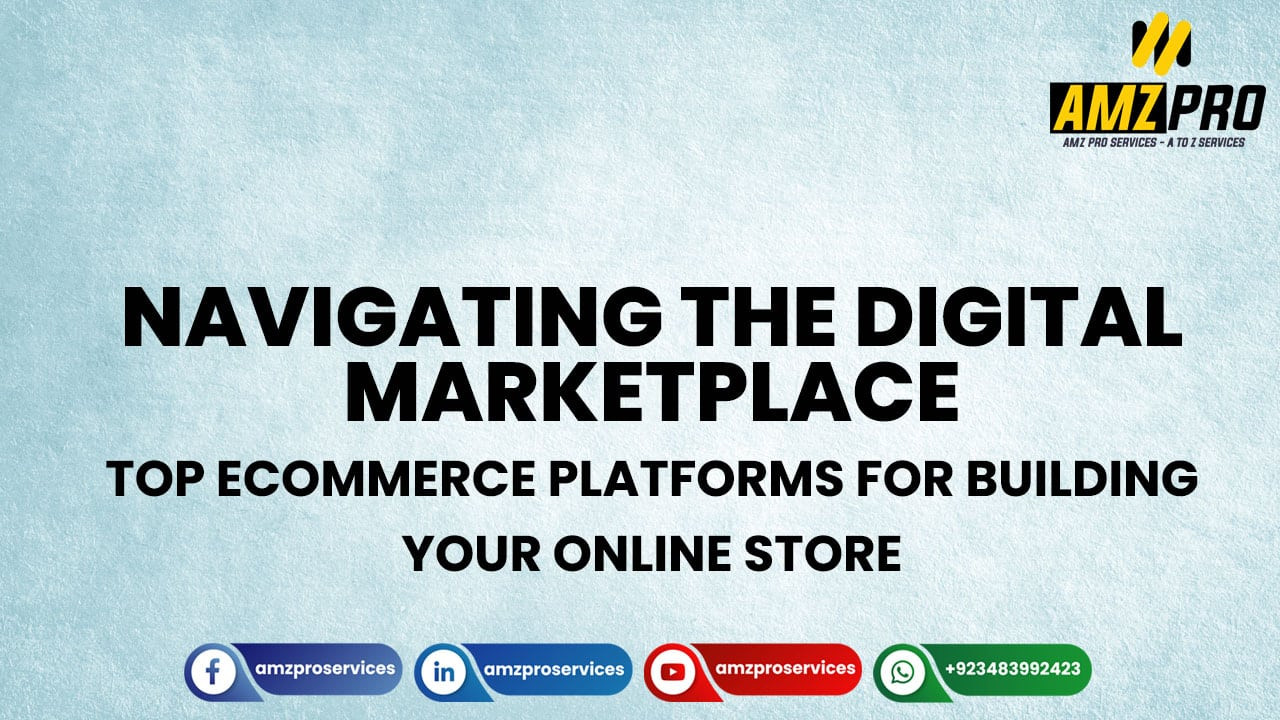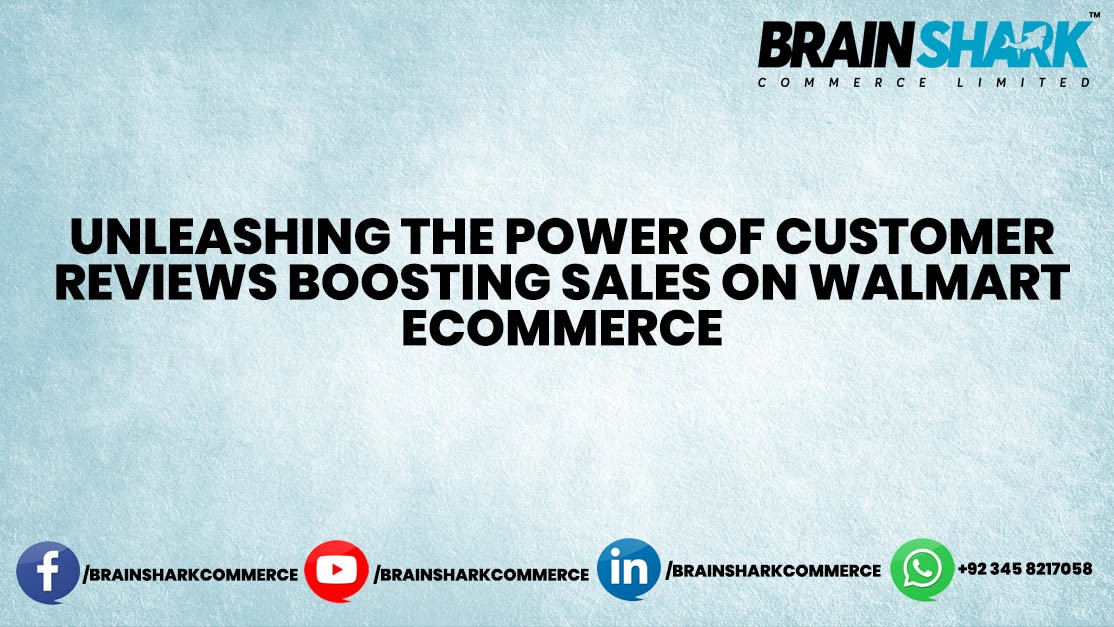Top Ecommerce Platforms for Building Your Online Store
As the world increasingly embraces the digital realm, businesses are turning to eCommerce platforms to establish their online presence. These platforms provide the necessary tools to create, manage, and scale an online store, offering a host of features from product listing and inventory management to payment processing and customer service. But with so many options available, how can you determine which platform is the best fit for your business? In this article, we will explore the top eCommerce platforms for building your online store.
Shopify
Possibly the most well-known eCommerce platform, Shopify offers a comprehensive suite of tools to help businesses create a fully functional online store. It features a user-friendly interface, a variety of customizable themes, and seamless integrations with various payment gateways and third-party apps. It also offers excellent customer support and resources for store optimization and growth. Shopify's scalability makes it an excellent choice for both small businesses and large enterprises.
WooCommerce
WooCommerce is a free, open-source eCommerce plugin designed for WordPress, the world's most popular content management system. It offers a high degree of customization and flexibility, allowing businesses to tailor their online store to their specific needs. With an extensive range of plugins, you can add a variety of features to your store, from different shipping options to SEO tools. However, WooCommerce requires some technical know-how, so it may be more suitable for those comfortable with WordPress.
BigCommerce
BigCommerce is another comprehensive platform that helps businesses create robust online stores. It stands out for its built-in features, including SEO tools, multi-channel selling, and excellent security measures. It also offers seamless integrations with many popular marketplaces and social media platforms. BigCommerce operates on a SaaS model, meaning users pay a monthly subscription for the software, but it's easy to use and doesn't require much technical expertise.
Magento
Owned by Adobe, Magento is a powerful open-source eCommerce platform favored by large businesses and enterprises due to its scalability and extensive features. Magento offers a high degree of customization, advanced SEO tools, and excellent inventory management systems. However, it can be quite complex and may require a dedicated developer or development team to maintain.
Wix eCommerce
Wix eCommerce is a great choice for small businesses or entrepreneurs who want to set up a simple online store quickly. Known for its drag-and-drop website builder, Wix also offers a range of eCommerce features such as product galleries, customizable product pages, and secure online payments. It also includes marketing tools like email marketing and social media integrations.
Squarespace
Squarespace is renowned for its sleek, professional templates, making it an excellent choice for businesses that prioritize aesthetics. Its eCommerce capabilities are robust, offering inventory management, multiple payment options, and strong SEO tools. Squarespace also supports multi-channel selling, allowing you to sell products directly on social media platforms.
Etsy
While not a traditional eCommerce platform, Etsy is a global online marketplace specializing in handmade, vintage, and craft-related products. For small businesses and individual artisans in these niches, Etsy can be an excellent platform for reaching a global customer base. It's straightforward to use, with sellers able to set up a store and list their products quickly.
Each eCommerce platform has its strengths and weaknesses, and the best choice depends on your business's specific needs and resources. Consider factors like your budget, your technical expertise, the size and nature of your product catalog, your SEO and marketing needs, and your long-term growth plans.
Whichever platform you choose, remember that building a successful online store involves more than just setting up a website. It requires a well-planned strategy, excellent customer service, and
continuous optimization based on data-driven insights.
PrestaShop
PrestaShop is another open-source eCommerce platform that's worth considering. It's known for its customizable nature and a large community of users who continuously contribute to its development. PrestaShop comes with a comprehensive set of features, including product listing, inventory management, and analytics. Although it's free to download and use, you may incur costs with add-on features and web hosting services.
Zyro
Zyro is a relatively new player in the field, but it has made a significant impact with its AI-driven tools. Besides offering core eCommerce functionalities, Zyro features AI tools like a logo maker, business name generator, and slogan generator, which can be immensely beneficial for businesses just starting. It's also known for its affordable pricing plans and user-friendly interface.
Volusion
Volusion is a fully cloud-based eCommerce platform that focuses on providing businesses with everything they need to start, grow, and manage their online store. Its features include a comprehensive site builder, marketing tools, customer relationship management, and detailed analytics. However, to take advantage of the more advanced features, you'll need to subscribe to higher-tier pricing plans.
3dcart
3dcart is another all-in-one eCommerce solution that provides a plethora of features targeted at online retailers. Some of its standout features include advanced shipping solutions, over 200 built-in features, and compatibility with over 100 payment providers. Its SEO tools are also excellent, offering businesses the tools needed to rank highly in search results.
Weebly
Weebly, owned by Square, is best known for its user-friendly website builder, but it also offers a solid range of eCommerce features. It provides a free plan, making it an attractive option for small businesses or startups on a tight budget. However, to access more advanced eCommerce features, you'll need to upgrade to a paid plan.
Choosing the Right eCommerce Platform
Choosing the right eCommerce platform is a pivotal decision that can significantly impact your business's online success. Each platform offers a unique blend of features, pricing, and scalability. It's crucial to consider your business model, product type, target audience, and specific requirements before making a decision.
Aside from the technical aspects, also consider the platform's ease of use. After all, managing an online store should be an exciting process, not a daunting task. Ensure the platform you choose has an intuitive user interface, a reliable customer support system, and a wealth of resources to help you navigate your eCommerce journey.
The Impact of E-commerce Platforms on Business Success
The role of eCommerce platforms in shaping businesses' online success cannot be overstated. These platforms not only simplify the process of setting up an online store but also provide businesses with the tools needed to attract, engage, and retain customers.
For instance, SEO tools can help your store rank higher in search engine results, thereby increasing your visibility and attracting more organic traffic. Similarly, integrated marketing tools can aid you in executing effective marketing campaigns, boosting brand awareness, and driving sales.
The analytics features offered by eCommerce platforms are particularly valuable. They enable businesses to track key metrics, gain insights into customer behavior, and make data-driven decisions to optimize their store and improve performance.
Final Thoughts
In conclusion, the world of eCommerce platforms is diverse and continually evolving. The best platform for your online store largely depends on your business's unique needs and goals. By understanding your requirements and carefully weighing the pros and cons of each platform, you can find the perfect match for your online retail journey. As the eCommerce landscape continues to grow and evolve, these platforms remain committed to empowering businesses to succeed in the digital marketplace.

